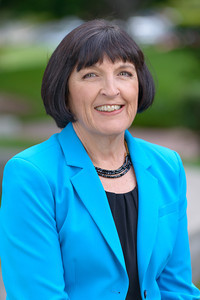The massive number of column inches dedicated to business succession planning focus on the legal, tax and business aspects of this lengthy process, which is certainly appropriate. However, once the plan is underway, how do the family and the next generation of leaders/successors get the founder to actually LET GO?
Often at the end of the transition process, a founder will balk at the last step, which may be issuing stock to the next generation, giving up the key to the executive offices or being honored at a “retirement” dinner. Too many younger family members have heard, “Well, maybe the management hand off can’t occur this year because….” Fill in the blank with any excuse you can imagine! Often the last part of the process is stalled when the inevitability of it all really strikes home for the founder. Why does this happen?
Psychologists will report that the business has become the founder’s alter ego and to leave part of their identity behind is a very painful process. Younger family members may feel that the founder doesn’t think they are capable or that they will “run the family business—and the family’s reputation—into the ground”. Many times founders in their late sixties are reluctant to leave their business because they haven’t developed hobbies and don’t know what to do with their spare time, much to their spouse’s chagrin. (Remember the rule here is “For better or worse, but not for lunch!”) There is also a fear of death occurring soon after “retirement”.
In my experience, the primary reason founders are reluctant to take leave of their enterprise is that they fail to become financially independent of their business. How ironic! Many times they started the business to have more discretionary income, to build wealth on their own, and yet they have plowed back into the business most of their hard earned excess cash. Without financial security that isn’t reliant on the continued success of the business, or installment payments from the entity or persons who are buying the stock, most founders will never leave the corporate offices. Without financial security independent from the business, the founder of the business may not be able to resist trying to head back into the business two or three years after the successors have taken over.
It cannot be emphasized enough that developing a diversified, relatively debt-free personal balance sheet is key to a fully implemented succession plan. The ideal personal balance sheet reflects non-business assets such as a retirement plan, a personal investment portfolio, non-business related real estate and a mortgage-free home. This kind of balance sheet is critical. It allows a business owner to actually pass on the business management and ownership to other folks without stressing about their own personal cash flow.
How does this happen over the founder’s life in the business? It needs to be part of the written business, succession, and estate plans which should be fully integrated. The business owner also must make it a priority to retain a functional, proactive and collegial group of professionals who help the grand plan come to fruition. These advisors need to be client-focused and keep the end game in sight for the founder. Having the right business attorney, CFP® professional, banker, trust officer, insurance agent, CPA, realtor, and philanthropy consultant can make the entire planning process a huge success.
Thus, in addition to all of the guidelines for a smooth transition, one of the major bullet points is to become financially independent of the business. How does your personal balance sheet look now? It’s not too late to start diversifying away from your business so that eventually, you too can move onto life after the business!
CCMI provides personalized fee-only financial planning and investment management services to business owners, professionals, individuals and families in San Diego and throughout the country. CCMI has a team of CERTIFIED FINANCIAL PLANNERTM professionals who act as fiduciaries, which means our clients’ interests always come first.
How can we help you?





